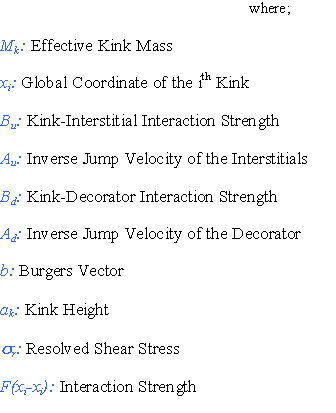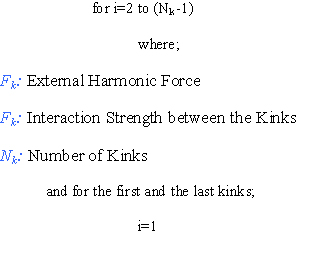Equation of Motion of an Individual Kink in the Geometric Kink Chain


Coordinate Transformation: Global (x) to Local Coordinates (u)
Assumption: Nearest-Neighbor Interaction between the Kinks







The time and space variables are normalized as;

with respect to the driving frequency and;

with respect to the distance travelled by a spread-out interstitial during one period of the motion.
Calculation of Dynamical Internal Friction Coefficient

where
Wdisp: Energy Dissipated per cycle by the total kink population
WE: Maximum elastic energy stored in the kink chain during one cycle of external excitation
Dissipation energy;
Due to spread-out interstitials

Due to decorator point defects

and,

where  is the macroscopic relaxation strength of the sample. This factor is previously described by Granato-Lucke, Schoeck, Seeger, and Ogurtani.
is the macroscopic relaxation strength of the sample. This factor is previously described by Granato-Lucke, Schoeck, Seeger, and Ogurtani.
Finally the following equations were used to calculate the internal friction. For the Parent Damping Peak:

and
For the Decoration Damping Peak
